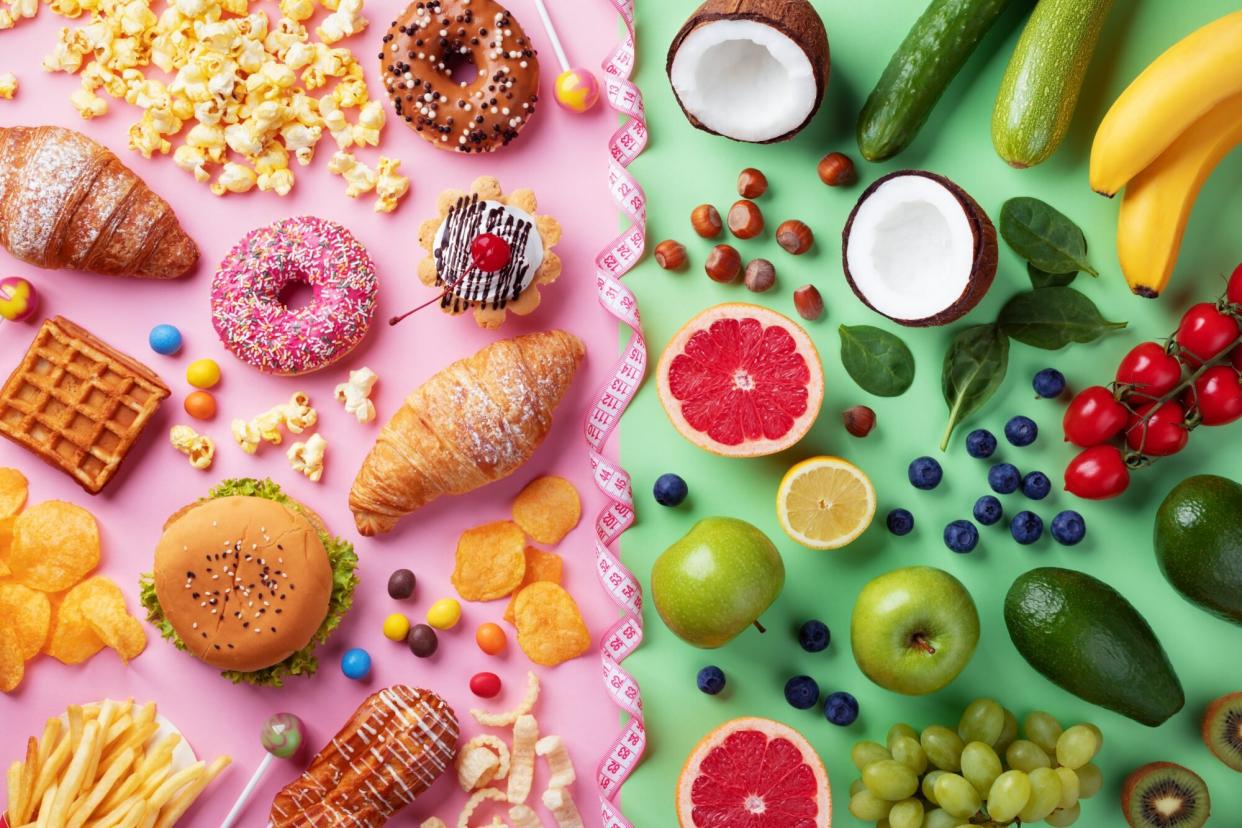It's Time to Stop Thinking of Foods As 'Good' and 'Bad'

Getty Images
Raise your hand if you ever said something like, "I was bad today" regarding your diet or labeled an indulgent brunch as a "cheat meal." Hey, everyone's done it — but I'm here to tell you to stop.
First of all, it's not scientifically true that any individual food is "bad." If you choose to have a burger and fries for dinner, you are not destined for a heart attack from that meal. It's not like you poured cyanide all over it for crying out loud. A single seasonal or themed Frappuccino (e.g. the unicorn frapp) — though definitely not the healthiest thing ever — isn't a one-way ticket to diabetes as so much of the backlash would lead you to believe. It's more about your overall eating patterns.
But the deeper harm that comes from labeling foods as "good" or "bad" is when something that you really enjoy the taste of (e.g. french fries) falls into the "bad" column. It's human nature to want to bring yourself pleasure — something that's achieved by indulging in delicious food. But if we label our favorite foods as "bad," when we do "break down" and have a "cheat meal," it's usually followed by guilt that sends us into a shame spiral. It's not just that the food is bad, you often feel bad for eating it. I mean, how often do you hear people say "I was bad today" in reference to their diet? Maybe you could have eaten healthier, sure. But you weren't bad. Cheating on your significant other is bad. Lying is bad. Eating a burger is not bad. (Related: How You Should Really Be Thinking About 'Cheat Days')
And this type of thinking is harmful to your health. See, when you tell yourself you're a failure for eating a few fries, you fall into a shame spiral, which makes you less likely to engage in other healthy behaviors because you start losing respect for yourself. Why would you take care of someone you don't respect?
Don't get me wrong, I'm not saying you should eat fatty foods all the time. (And, remember, some fats are actually pretty darn beneficial for your body.) It's important to first decide what you actually like to consume. If fries are on the list, that's okay — you can figure out a way to make fries fit into your diet. Instead of saying they're are your "screw it" food, labeling that entire meal as "cheating," and setting up a bad relationship with fries, I encourage people to think about how often they want to allow themselves to have fries that week. When you tell yourself you're allowed to have them, the indulgence suddenly loses its allure as a thing you need to fight and avoid. Fries are no longer a rule to be broken. A lot of times, people find that by giving themselves permission to eat and enjoy the so-called bad foods they love, they not only savor every bite but actually eat less because it no longer feels like they need to eat as much as they can while they have the chance.
Ultimately, when you police food as "good" or "bad," you strip all foods of joy. "Good" foods are boring and healthy, and "bad" foods make you feel guilty. But when you start listening to your body and eating what you want in moderation, healthy foods taste even better and you stop feeling like a failure over enjoying the foods that bring you pleasure. So go ahead and order that burger if you're really craving it. Just please, don't think of it as "bad" and let yourself appreciate it as what it is: so damn good. (Related: Why You Should Give Up Restrictive Dieting Once and for All)

